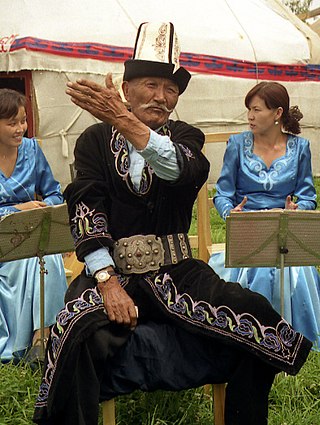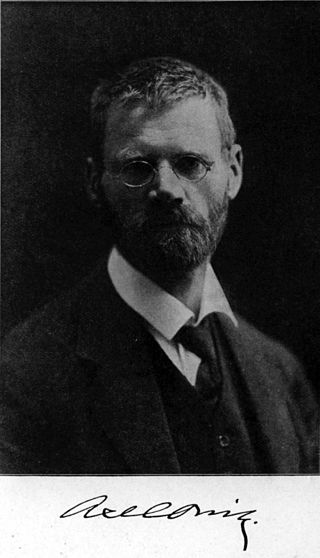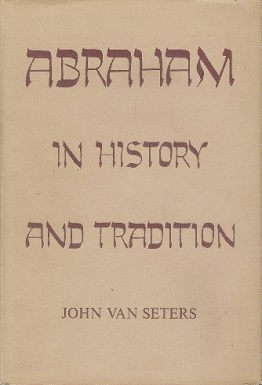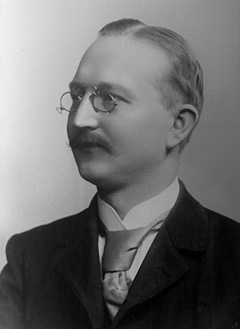Related Research Articles

The Bible is a collection of religious texts or scriptures, some, all, or a variant of which are held to be sacred in Christianity, Judaism, Samaritanism, Islam, the Baha'i Faith, and other Abrahamic religions. The Bible is an anthology originally written in Hebrew, Aramaic, and Koine Greek. The texts include instructions, stories, poetry, prophecies, and other genres. The collection of materials that are accepted as part of the Bible by a particular religious tradition or community is called a biblical canon. Believers in the Bible generally consider it to be a product of divine inspiration, but the way they understand what that means and interpret the text varies.

Oral tradition, or oral lore, is a form of human communication in which knowledge, art, ideas and culture are received, preserved, and transmitted orally from one generation to another. The transmission is through speech or song and may include folktales, ballads, chants, prose or poetry. It is a medium of communication for a society to transmit oral history, oral literature, oral law and other knowledge across generations without a writing system, or in parallel to a writing system.

Axel Olrik was a Danish folklorist and scholar of mediaeval historiography, and a pioneer in the methodical study of oral narrative.
The historicity of the Bible is the question of the Bible's relationship to history—covering not just the Bible's acceptability as history but also the ability to understand the literary forms of biblical narrative. One can extend biblical historicity to the evaluation of whether or not the Christian New Testament is an accurate record of the historical Jesus and of the Apostolic Age. This tends to vary depending upon the opinion of the scholar.

Exegesis is a critical explanation or interpretation of a text. The term is traditionally applied to the interpretation of Biblical works. In modern usage, exegesis can involve critical interpretations of virtually any text, including not just religious texts but also philosophy, literature, or virtually any other genre of writing. The phrase Biblical exegesis can be used to distinguish studies of the Bible from other critical textual explanations.
Biblical studies is the academic application of a set of diverse disciplines to the study of the Bible. For its theory and methods, the field draws on disciplines ranging from ancient history, historical criticism, philology, theology, textual criticism, literary criticism, historical backgrounds, mythology, and comparative religion.

Biblical criticism is the use of critical analysis to understand and explain the Bible without appealing to the supernatural. During the eighteenth century, when it began as historical-biblical criticism, it was based on two distinguishing characteristics: (1) the scientific concern to avoid dogma and bias by applying a neutral, non-sectarian, reason-based judgment to the study of the Bible, and (2) the belief that the reconstruction of the historical events behind the texts, as well as the history of how the texts themselves developed, would lead to a correct understanding of the Bible. This sets it apart from earlier, pre-critical methods; from the anti-critical methods of those who oppose criticism-based study; from the post-critical orientation of later scholarship; and from the multiple distinct schools of criticism into which it evolved in the late twentieth and early twenty-first centuries.
According to Rabbinic Judaism, the Oral Torah or Oral Law are statutes and legal interpretations that were not recorded in the Five Books of Moses, the Written Torah, and which are regarded by Orthodox Jews as prescriptive and given at the same time. This holistic Jewish code of conduct encompasses a wide swathe of rituals, worship practices, God–man and interpersonal relationships, from dietary laws to Sabbath and festival observance to marital relations, agricultural practices, and civil claims and damages.
Biblical hermeneutics is the study of the principles of interpretation concerning the books of the Bible. It is part of the broader field of hermeneutics, which involves the study of principles of interpretation, both theory and methodology, for all forms of communication, nonverbal and verbal.
Form criticism as a method of biblical criticism classifies units of scripture by literary pattern and then attempts to trace each type to its period of oral transmission. "Form criticism is the endeavor to get behind the written sources of the Bible to the period of oral tradition, and to isolate the oral forms that went into the written sources. Insofar as this attempts to trace the history of the tradition, it is known as tradition criticism." Form criticism seeks to determine a unit's original form and the historical context of the literary tradition.

Abraham in History and Tradition is a book by biblical scholar John Van Seters.

Hermann Gunkel, a German Old Testament scholar, founded form criticism. He also became a leading representative of the history of religions school. His major works cover Genesis and the Psalms, and his major interests centered on the oral tradition behind written sources and in folklore.

In Christianity, the term biblical authority refers to two complementary ideas:
Source criticism, in biblical criticism, refers to the attempt to establish the sources used by the authors and redactors of a biblical text. It originated in the 18th century with the work of Jean Astruc, who adapted the methods already developed for investigating the texts of classical antiquity to his own investigation into the sources of the Book of Genesis. It was subsequently considerably developed by German scholars in what was known as "the higher criticism", a term no longer in widespread use. The ultimate aim of these scholars was to reconstruct the history of the biblical text and also the religious history of ancient Israel.

Canonical criticism, sometimes called canon criticism or the canonical approach, is a way of interpreting the Bible that focuses on the text of the biblical canon itself as a finished product.

Oral gospel traditions is the hypothetical first stage in the formation of the written gospels as information was passed by word of mouth. These oral traditions included different types of stories about Jesus. For example, people told anecdotes about Jesus healing the sick and debating with his opponents. The traditions also included sayings attributed to Jesus, such as parables and teachings on various subjects which, along with other sayings, formed the oral gospel tradition. The supposition of such traditions have been the focus of scholars such as Bart Ehrman, James Dunn, and Richard Bauckham, although each scholar varies widely in his conclusions, with Ehrman and Bauckham publicly debating on the subject.
Historical criticism is a branch of criticism that investigates the origins of ancient texts to understand "the world behind the text" and emphasizes a process that "delays any assessment of scripture’s truth and relevance until after the act of interpretation has been carried out". While often discussed in terms of ancient Jewish, Christian, and increasingly Islamic writings, historical criticism has also been applied to other religious and secular writings from various parts of the world and periods of history.
Ancient Hebrew writings are texts written in Biblical Hebrew using the Paleo-Hebrew alphabet before the destruction of the Second Temple in 70 CE.
The Catholic theology of Scripture has developed much since the Second Vatican Council of Catholic Bishops. This article explains the theology of scripture that has come to dominate in the Catholic Church today. It focuses on the Church's response to various areas of study into the original meaning of texts.
The composition of the Torah was a process that involved multiple authors over an extended period of time. While Jewish tradition holds that all five books were originally written by Moses sometime in the 2nd millennium BCE, leading scholars have rejected Mosaic authorship since the 17th century.
References
- G. W. Coats, s.v. "Tradition Criticism, OT," Interpreter's Dictionary of the Bible, Supplement.
- R. N. Whybray, The Making of the Pentateuch. Sheffield: JSOT Press, 1987, pp. 133–219.